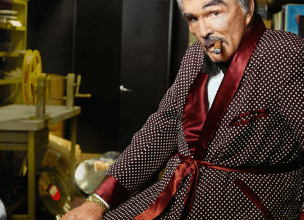Airbus Ceo Says Are Bad for

Airbus Ceo Says Are Bad for, as the recent statements from Airbus’s CEO regarding the detrimental effects of supply chain disruptions reveal significant concerns for the aerospace giant. These challenges, stemming from various factors including transportation inefficiencies and component shortages, not only impede production timelines but also threaten Airbus’s competitive edge in an increasingly volatile market. As the company grapples with these issues, it raises critical questions about the strategies necessary to mitigate such risks. What implications do these challenges hold for the broader industry landscape, and how might Airbus adapt to sustain its market position?
Read also: try hard guides wordle solver
Supply Chain Disruptions
The aerospace industry’s supply chain disruptions have significantly impacted Airbus’s production timelines and operational efficiency.
Logistical challenges such as transportation bottlenecks and component shortages have resulted in manufacturing delays, hindering the company’s ability to meet delivery schedules.
These disruptions not only affect production rates but also impose additional costs, ultimately threatening Airbus’s competitive position in the global market.
Demand Fluctuations
Amidst the evolving landscape of the aerospace market, demand fluctuations have emerged as a critical challenge for Airbus.
These fluctuations are influenced by shifting market trends and evolving consumer behavior, necessitating adaptive strategies.
Analyzing data-driven insights allows Airbus to anticipate changes, align production capabilities, and optimize resource allocation effectively.
Understanding these dynamics is essential for maintaining competitiveness in an increasingly volatile environment.

Environmental Regulations
Navigating demand fluctuations is intricately linked to the imposition of stringent environmental regulations in the aerospace sector.
Regulatory compliance necessitates significant investment in sustainable practices, compelling manufacturers to innovate while balancing operational costs.
As these regulations evolve, companies must adapt their strategies to align with environmental expectations, ultimately impacting supply chain dynamics and influencing market positioning in an increasingly eco-conscious landscape.
Industry Competitiveness
Intense industry competitiveness in the aerospace sector is driven by rapid technological advancements and shifting market demands.
Companies must prioritize market innovation to maintain relevance, while effective labor relations are essential for optimizing productivity.
Navigating these dynamics requires a strategic approach, balancing investment in cutting-edge technologies with fostering a collaborative workforce, ultimately ensuring sustained growth and resilience in an increasingly volatile environment.
Read also: 5 letter words try hard guides
Conclusion
In conclusion, Airbus Ceo Says Are Bad for the myriad challenges faced by Airbus, including supply chain disruptions and fluctuating demand, necessitate the implementation of robust adaptive strategies. How can the aerospace industry effectively mitigate these obstacles to ensure sustained operational efficiency and market competitiveness? Addressing such questions will be crucial for Airbus and its peers to navigate the complexities of modern manufacturing while complying with stringent environmental regulations and maintaining a competitive edge in a rapidly evolving global market.






